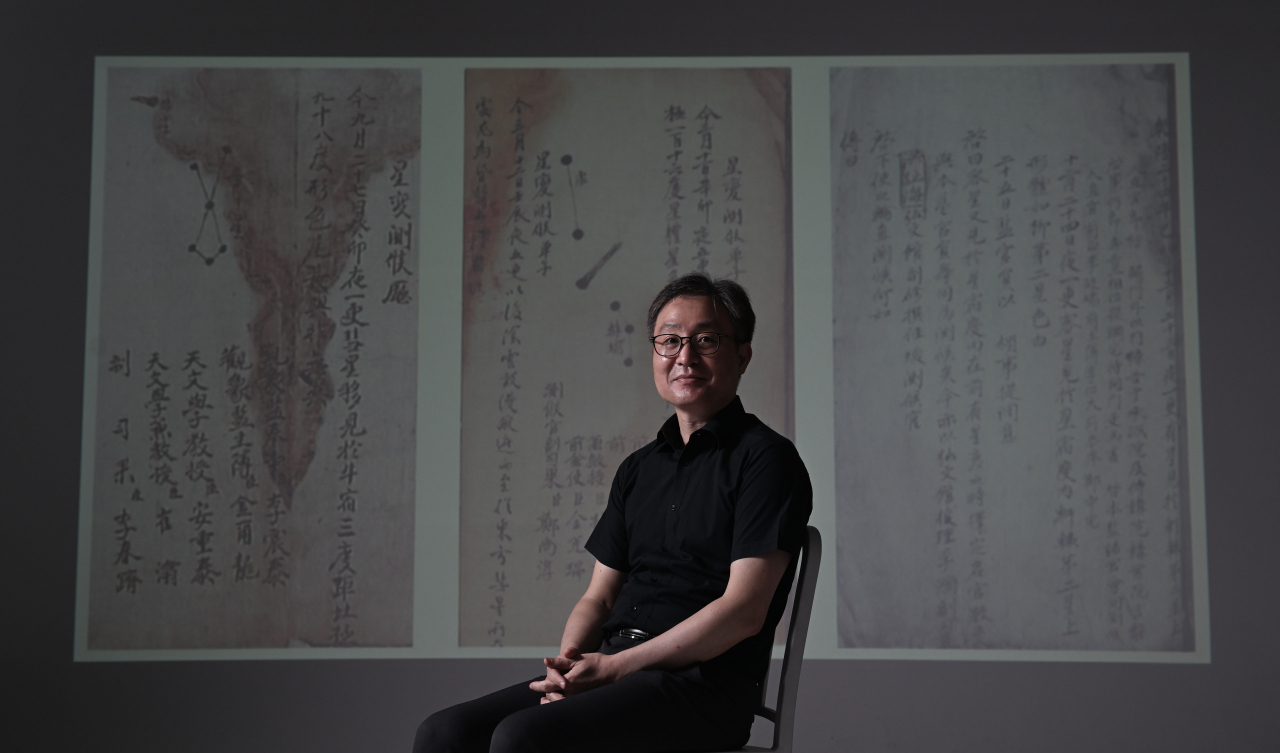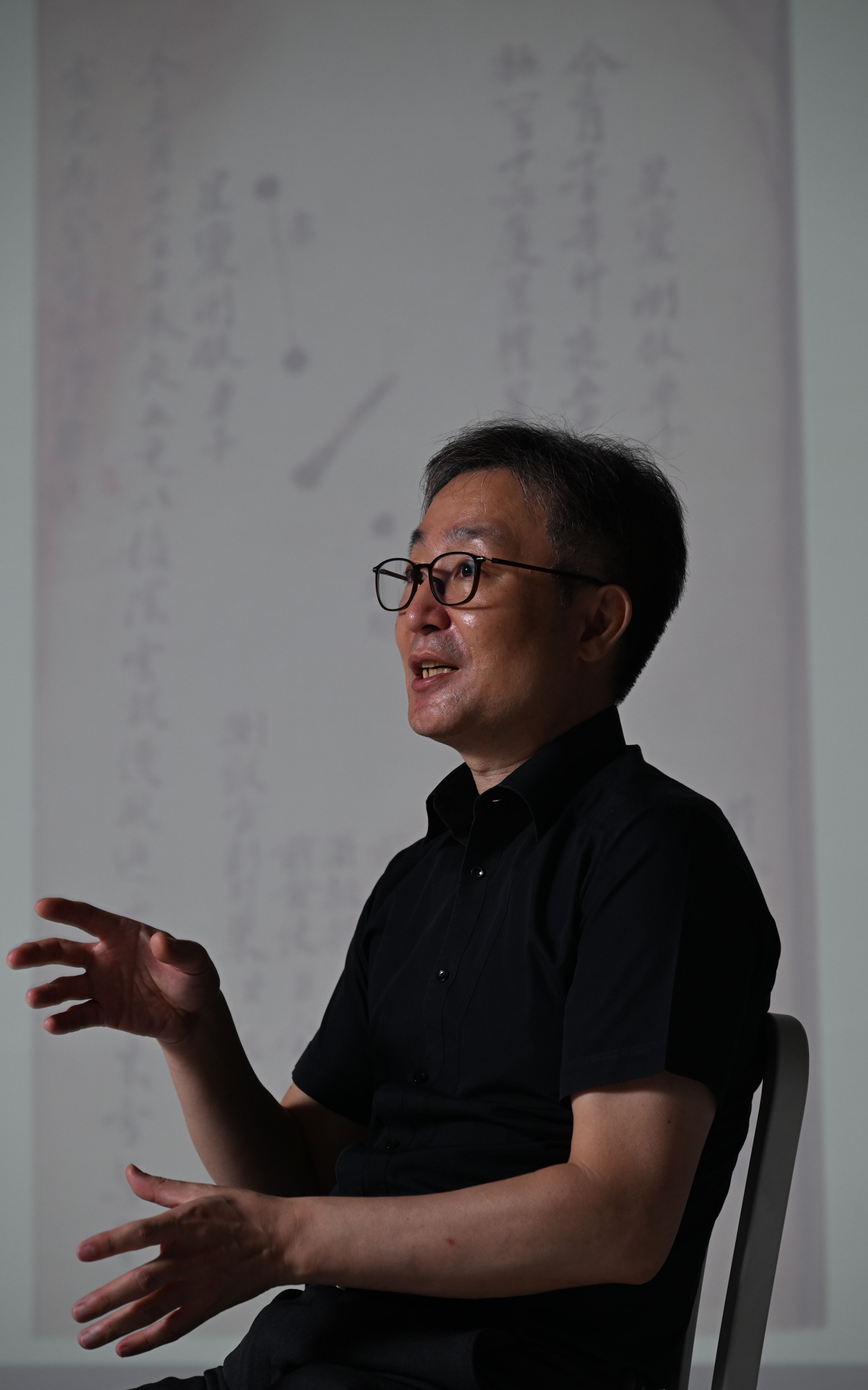[Beyond Earth] ‘Halley’s comet could have had a different name’
Korea’s centuries old record of mapping the skies has lots to offer for global space studies: expert
By Kan Hyeong-wooPublished : Aug. 13, 2023 - 16:40

Halley’s Comet, arguably the most well-known comet in the world, is a short-period comet that comes close enough to the Earth about every 76 years that it can be seen with the naked eye. It was last observed in 1986 and is forecast to return in 2061.
The comet is named after English astronomer Edmond Halley, who worked out the pattern by which the comet comes back to the Earth over and over. Although he did not live to see his prediction of the comet’s return in 1758 or 1759 prove true, the comet was named after him.
But while the pattern was not worked out in Korea, there are records of the comet being observed here dating back to the Goryeo Kingdom (918-1392).
According to Yang Hong-jin, the manager of the Center for Historical Astronomy at the Korea Astronomy and Space Science Institute, Korea has hundreds of years worth of astrological data that could provide vital information in the study of comets.
“The log of Halley’s comet’s first return to the Earth after his death was (also made) in South Korea,” said in an interview with The Korea Herald in Seoul on July 28.
“And it’s not just a one-day log. There are about 14 days of Halley’s comet observation log. They are not only historically meaningful but also scientific values.”
Historical astronomy, also known as archaeoastronomy, is a multidisciplinary study of how people in the past understood and recorded phenomena in the sky, how they used these phenomena in everyday life and what role the sky played in different countries and cultures.
Yang explained that the daily log from the Joseon era, which lasted from 1392 to 1910, recorded who the observers were including their names, how they kept the logs and where the observation took place.
“The log says, ‘The body, tail and color of the comet were not different from yesterday,’” he said. “To do this, the observers must compare that night’s log from the previous night or one of the observers must have stayed for two nights in a row.”
Studying the names written in the log, he found that one of the five observers stayed for two consecutive nights.
“It shows how systematic and scientific the observations were even back then,” he said. “And the way they kept the log is very similar to how modern-day astronomers would observe comets. If you have three days of a comet’s log, we can calculate the comet’s orbit. This can let us figure out how the comet orbited the Earth then and how the comet’s orbit has changed over time.”

Yang underlined that this would eventually allow us to figure out what factors can affect comets in the solar system and how much they can impact comets.
“In order for mankind to conduct space exploration, we need to calculate the chances of meteor showers,” he said. “How can we figure it out? By looking at historical records and analyzing them statistically.”
According to Yang, Korea and China have astronomy records running over 2,000 years. He says China has more data, but it lacks continuity because it had numerous kingdoms that lasted less than 200 years.
“Astronomy was one of the most heavily-studied subjects by the royal family. It was considered important because astronomy is a study of time and space,” he said. “Our ancestors studied skies and stars to figure out the timing of farming and where to go.”
Yang acknowledged that there have been individual astronomers in European countries going back a long time, and some had observed Halley’s comet after its namesake's death. However, he noted that Korea’s archaeoastronomy records were led by kingdoms, which would be equivalent to the national archives of today.
So while Halley identified the comet's pattern, Joseon Korea also had the information needed, along with a wealth of other data that remains preserved in the records.
“Our ancestors did not name the comet. If any royal family wanted to name the comet after either a Joseon and Goryeo astronomer, it could have had a different name,” he said.
Korea’s astronomers have joined hands to push for the UNESCO world heritage recognition of the three daily logs from the Joseon Dynasty.
“There are many domestic scholars who are not aware of our historical astronomy,” said Yang. “Across the globe, not many people know about our logs. But what we have is something that worldwide people would take interest in.”



















